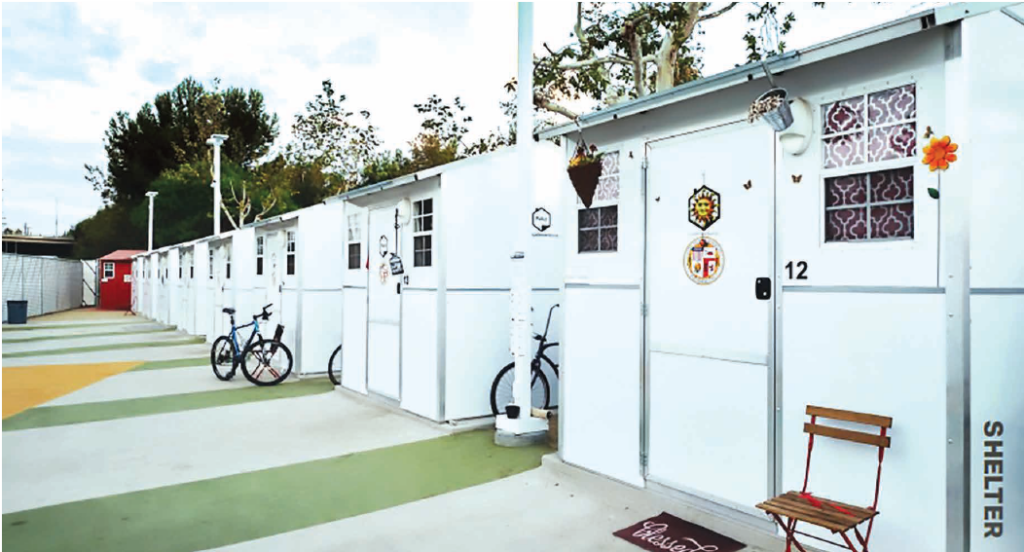Mayor Michael Johnston recently announced the preliminary locations of 11 temporary homeless housing sites, which could include tiny homes or pallet homes.
Tiny homes are movable units, but pallet homes are lighter and can be put together quicker to provide shelter for the unhoused population. Johnston said he hopes to have the temporary housing locations up and running by the end of the year as part of his goal to get 1,000 people off the streets.
“We have access to the construction pipeline of homes that we’ll need,” Johnston said. “We’ll continue the community engagement process to help land these sites and these units to prepare to get people moved off of the streets and into housing.”

According to the mayor’s office, a pallet home or tiny home location could be coming to 3700 Galapago St. in the southwestern corner of Globeville.
“We do have other sites that we are in current negotiations with that are owned by private landowners,” Johnston said. “The private- land-owning community has been very cooperative and collaborative. Some of them have some details we have to work out with their land before they go public.”
The Globeville, Elyria and Swansea neighborhoods already host two tiny home villages, operated by Colorado Village Collaborative (CVC), which are located at 4201 Monroe St.
The Monroe site has about 40 tiny homes with the ability to house up to 30 people. The site could also add two more tiny homes later, and CVC has stated it could operate on another lot to the south that is essentially the same size.
Johnston said the map he unveiled recently will not be a final map of the locations. He said the sites vary between existing structures such as hotels and motels the city has purchased, while the others are vacant land.
“There’s another one that’s connected to a library on the west side, Corky Gonzales library, and most of the others are all vacant plots of land we would look to (establish) tiny homes or pallet homes,” Johnston said.
Johnston added his office recently met with apartment owners from across the city who represent about 45,000 units.
“We’re working directly to bring on leased units, (and) we’re gonna move people directly into those apartment units,” the mayor said.
“We’re still working on hotel conversions that add another source of units, but these (locations) are the ones that we have.”
According to the mayor’s office, a request for proposals is in the works to find providers of wraparound services and site management, including security for the pallet home sites. Another request will seek to find manufacturers of tiny homes.
When asked whether he thought the locations or future locations for temporary homeless housing were being put in neighborhoods that are economically disadvantaged, Johnston said he didn’t think that was true.
“What we’ll see is they actually do represent geographic diversity across the city. They do represent socioeconomic diversity,” he said.
The Denver City Council recently approved a contract of $7 million to purchase 200 pallet homes as part of the initiative to get 1,000 people off the streets.

Be the first to comment